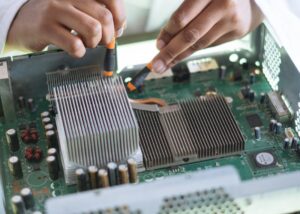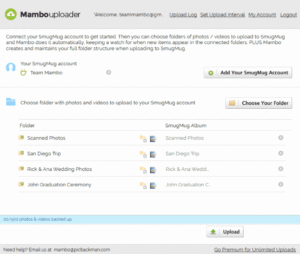-
Table of Contents
- Common Reasons for Slow Performance on Windows 11 PCs
- Effective Ways to Optimize Performance on Windows 11 PCs
- How to Identify and Resolve Software-related Issues Affecting Windows 11 Performance
- Hardware Upgrades and Enhancements to Boost Windows 11 PC Performance
- Best Practices for Maintaining a Fast and Efficient Windows 11 PC
- Q&A
Tagline: “Boost your Windows 11 PC’s speed with these performance-enhancing tips!”
Windows 11 PC may become slow due to various factors such as outdated hardware, insufficient system resources, software conflicts, or excessive background processes. To improve its performance, you can try the following steps:
1. Update your system: Ensure that your Windows 11 PC is running the latest updates and patches provided by Microsoft.
2. Check hardware requirements: Verify if your PC meets the minimum hardware requirements for Windows 11. If not, consider upgrading components like RAM, CPU, or storage.
3. Optimize startup programs: Disable unnecessary programs from starting up with your PC to reduce the load on system resources.
4. Remove unnecessary software: Uninstall any unused or unnecessary applications to free up disk space and reduce background processes.
5. Scan for malware: Run a thorough scan using reliable antivirus software to detect and remove any malware or viruses that may be affecting your PC’s performance.
6. Adjust visual effects: Reduce or disable certain visual effects in Windows 11 to allocate more resources for essential tasks.
7. Clean up disk space: Use the built-in Disk Cleanup tool to remove temporary files, system junk, and other unnecessary data that may be cluttering your hard drive.
8. Optimize power settings: Adjust your power settings to prioritize performance over energy saving, which can help improve overall system responsiveness.
9. Upgrade storage to SSD: Consider upgrading your traditional hard drive to a solid-state drive (SSD) for faster data access and improved system performance.
10. Close unnecessary background processes: Use the Task Manager to identify and close any resource-intensive background processes that may be slowing down your PC.
Remember, the effectiveness of these steps may vary depending on your specific system configuration and usage patterns.
Common Reasons for Slow Performance on Windows 11 PCs
Why is my Windows 11 PC slow and how can I improve its performance?
Common Reasons for Slow Performance on Windows 11 PCs
Windows 11 is the latest operating system from Microsoft, offering a range of new features and improvements. However, like any computer, your Windows 11 PC may experience slow performance at times. Understanding the common reasons behind this sluggishness can help you identify and resolve the issue, ensuring your PC runs smoothly and efficiently.
One common reason for slow performance on Windows 11 PCs is insufficient hardware resources. As technology advances, software becomes more demanding, requiring more processing power, memory, and storage. If your PC’s hardware does not meet the minimum requirements for Windows 11, it may struggle to handle the operating system’s tasks, resulting in slow performance. Upgrading your hardware, such as adding more RAM or upgrading to a faster processor, can significantly improve your PC’s performance.
Another factor that can contribute to slow performance is the presence of malware or viruses on your PC. Malicious software can consume system resources, slow down processes, and even steal your personal information. Running regular antivirus scans and keeping your security software up to date can help detect and remove any malware, improving your PC’s performance and protecting your data.
Over time, your PC’s storage can become cluttered with unnecessary files and programs, which can slow down its performance. Temporary files, old downloads, and unused applications take up valuable space and can cause your PC to run slower. Regularly cleaning up your storage by deleting unnecessary files and uninstalling unused programs can free up space and improve your PC’s performance.
Outdated or incompatible drivers can also contribute to slow performance on Windows 11 PCs. Drivers are software that allows your hardware to communicate with the operating system. If your drivers are outdated or incompatible with Windows 11, they may not function optimally, leading to slow performance. Updating your drivers regularly, either manually or through automatic updates, can help ensure compatibility and improve your PC’s performance.
Background processes and startup programs can also impact your PC’s performance. Some programs may run in the background, consuming system resources even when you’re not actively using them. Additionally, having too many programs set to launch at startup can slow down your PC’s boot time and overall performance. Managing your startup programs and disabling unnecessary background processes can help improve your PC’s speed and responsiveness.
Lastly, fragmented files on your hard drive can contribute to slow performance. When files are fragmented, meaning they are stored in non-contiguous blocks on the hard drive, it takes longer for the system to access and read them. Running a disk defragmentation tool can rearrange these files, optimizing their placement and improving your PC’s performance.
In conclusion, there are several common reasons why your Windows 11 PC may be running slow. Insufficient hardware resources, malware or viruses, cluttered storage, outdated drivers, background processes, and fragmented files can all contribute to sluggish performance. By addressing these issues through hardware upgrades, regular maintenance, and software optimization, you can significantly improve your PC’s speed and overall performance. Keeping your PC running smoothly ensures a more productive and enjoyable computing experience.
Effective Ways to Optimize Performance on Windows 11 PCs
Why is my Windows 11 PC slow and how can I improve its performance?
Windows 11 is the latest operating system from Microsoft, offering a range of new features and improvements. However, like any computer, over time, your Windows 11 PC may start to slow down. This can be frustrating, especially if you rely on your computer for work or entertainment. Fortunately, there are several effective ways to optimize performance on Windows 11 PCs.
One common reason for a slow Windows 11 PC is the accumulation of unnecessary files and programs. Over time, your computer can become cluttered with temporary files, unused applications, and other digital debris. This can significantly impact performance. To address this issue, you can use the built-in Disk Cleanup tool in Windows 11. This tool allows you to remove unnecessary files, freeing up valuable storage space and improving overall performance.
Another factor that can contribute to a slow Windows 11 PC is a lack of available memory. If your computer is running low on RAM, it may struggle to handle multiple tasks simultaneously, resulting in sluggish performance. To address this issue, you can consider upgrading your RAM. Adding more memory to your PC can provide a significant boost in performance, allowing you to run more demanding applications and multitask more efficiently.
In addition to upgrading your RAM, optimizing your PC’s startup programs can also help improve performance. When you start your computer, various programs and applications may automatically launch, consuming valuable system resources. By disabling unnecessary startup programs, you can reduce the strain on your PC’s resources and improve overall performance. To do this, you can use the Task Manager in Windows 11 to manage startup programs and disable any that are not essential.
Another effective way to optimize performance on a Windows 11 PC is to ensure that your drivers and software are up to date. Outdated drivers and software can cause compatibility issues and performance problems. To address this, you can regularly check for updates using Windows Update or visit the manufacturer’s website to download the latest drivers and software for your PC. Keeping your system up to date can help ensure optimal performance and compatibility with the latest applications and hardware.
Furthermore, optimizing your PC’s power settings can also have a significant impact on performance. Windows 11 offers several power plans, each with different settings that prioritize either performance or energy efficiency. By selecting a power plan that emphasizes performance, you can ensure that your PC is utilizing its resources effectively and delivering the best possible performance. You can access and customize power settings in the Control Panel or the Settings app in Windows 11.
Lastly, regular maintenance and cleaning can help keep your Windows 11 PC running smoothly. This includes tasks such as scanning for malware and viruses, defragmenting your hard drive, and cleaning out temporary files. By performing these routine maintenance tasks, you can prevent performance issues and keep your PC running at its best.
In conclusion, a slow Windows 11 PC can be frustrating, but there are several effective ways to improve its performance. By removing unnecessary files, upgrading your RAM, optimizing startup programs, keeping drivers and software up to date, adjusting power settings, and performing regular maintenance, you can optimize the performance of your Windows 11 PC and enjoy a faster and more efficient computing experience.
How to Identify and Resolve Software-related Issues Affecting Windows 11 Performance
Windows 11 is the latest operating system from Microsoft, promising improved performance and a sleek user interface. However, even with the advancements in technology, you may still encounter performance issues on your Windows 11 PC. These issues can be frustrating, especially when they slow down your productivity or hinder your gaming experience. In this article, we will explore how to identify and resolve software-related issues that may be affecting the performance of your Windows 11 PC.
One of the first steps in identifying software-related issues is to check for any background processes or applications that may be consuming excessive system resources. To do this, open the Task Manager by pressing Ctrl + Shift + Esc or right-clicking on the taskbar and selecting Task Manager. In the Task Manager, navigate to the Processes tab and sort the processes by CPU or memory usage. Look for any processes that are using a significant amount of resources and consider closing or uninstalling them if they are not essential.
Another common cause of performance issues is outdated or incompatible drivers. Drivers are software that allows your hardware devices to communicate with the operating system. If you have recently upgraded to Windows 11, it is crucial to ensure that all your drivers are up to date. To check for driver updates, you can visit the manufacturer’s website for each device or use a driver update utility. These utilities can scan your system and automatically download and install the latest drivers for your hardware.
In addition to drivers, it is also essential to keep your operating system and applications up to date. Microsoft regularly releases updates for Windows 11 that include bug fixes, security patches, and performance improvements. To check for updates, go to Settings > Windows Update and click on Check for updates. Similarly, you should also update your applications to their latest versions, as developers often release updates to address performance issues and optimize compatibility with the latest operating systems.
If you have tried the above steps and are still experiencing performance issues, it may be worth considering a clean boot. A clean boot allows you to start Windows with a minimal set of drivers and startup programs, eliminating any potential conflicts that may be causing performance problems. To perform a clean boot, open the System Configuration utility by pressing Windows + R, typing “msconfig,” and pressing Enter. In the System Configuration window, navigate to the Services tab and check the “Hide all Microsoft services” box. Then, click on “Disable all” and go to the Startup tab to disable any startup programs. After applying these changes, restart your computer and see if the performance improves.
Lastly, if none of the above steps resolve your performance issues, it may be necessary to consider a system restore or a clean installation of Windows 11. System restore allows you to revert your computer to a previous state when it was functioning correctly, while a clean installation involves reinstalling Windows 11 from scratch. Both options should be approached with caution, as they can result in data loss. Therefore, it is crucial to back up your important files before proceeding with either option.
In conclusion, software-related issues can significantly impact the performance of your Windows 11 PC. By identifying and resolving these issues, you can improve the overall speed and responsiveness of your computer. Whether it is closing unnecessary background processes, updating drivers and applications, performing a clean boot, or considering a system restore or clean installation, there are various steps you can take to address performance issues. Remember to approach these steps with caution and always back up your important files to avoid any potential data loss.
Hardware Upgrades and Enhancements to Boost Windows 11 PC Performance
Windows 11 is the latest operating system from Microsoft, promising a sleek and modern user interface along with improved performance. However, even with the advancements in technology, you may find that your Windows 11 PC is running slower than expected. This can be frustrating, especially when you need your computer to perform tasks efficiently. Fortunately, there are several hardware upgrades and enhancements you can consider to boost the performance of your Windows 11 PC.
One of the first hardware upgrades you can consider is increasing the amount of RAM in your computer. RAM, or Random Access Memory, is responsible for temporarily storing data that your computer needs to access quickly. If your PC has a low amount of RAM, it may struggle to handle multiple tasks simultaneously, resulting in slower performance. By upgrading your RAM, you can provide your computer with more memory to work with, allowing it to handle tasks more efficiently.
Another hardware upgrade to consider is replacing your hard drive with a solid-state drive (SSD). Traditional hard drives use spinning disks to store and retrieve data, which can be slower compared to SSDs. SSDs, on the other hand, use flash memory, which allows for faster data access and retrieval. By replacing your hard drive with an SSD, you can significantly improve the speed at which your Windows 11 PC boots up, opens applications, and accesses files.
In addition to upgrading your RAM and hard drive, you may also want to consider upgrading your graphics card. A graphics card is responsible for rendering images and videos on your computer screen. If you use your Windows 11 PC for tasks that require heavy graphics processing, such as gaming or video editing, a more powerful graphics card can greatly enhance your computer’s performance. A high-performance graphics card can handle complex graphics calculations more efficiently, resulting in smoother gameplay and faster video rendering.
Furthermore, if you find that your Windows 11 PC is slow when it comes to internet browsing, upgrading your network card can help. A network card, also known as a network adapter, is responsible for connecting your computer to the internet. Older network cards may not support the latest Wi-Fi standards or have slower connection speeds. By upgrading to a newer network card, you can take advantage of faster internet speeds and improved connectivity, resulting in a smoother browsing experience.
Lastly, it’s important to ensure that your Windows 11 PC is properly cooled. Overheating can cause your computer to slow down as it tries to protect itself from damage. Make sure that your computer’s fans are clean and functioning properly. You may also consider adding additional cooling solutions, such as liquid cooling or extra fans, to keep your PC running at optimal temperatures.
In conclusion, if you find that your Windows 11 PC is running slower than expected, there are several hardware upgrades and enhancements you can consider. Increasing your RAM, replacing your hard drive with an SSD, upgrading your graphics card, improving your network card, and ensuring proper cooling can all contribute to a significant boost in performance. By investing in these hardware upgrades, you can enjoy a faster and more efficient Windows 11 PC experience.
Best Practices for Maintaining a Fast and Efficient Windows 11 PC
Why is my Windows 11 PC slow and how can I improve its performance?
Windows 11 is the latest operating system from Microsoft, offering a range of new features and improvements over its predecessor. However, like any computer, your Windows 11 PC may start to slow down over time. This can be frustrating, especially if you rely on your computer for work or entertainment. In this article, we will explore some of the reasons why your Windows 11 PC may be slow and provide you with best practices for maintaining a fast and efficient system.
One common reason for a slow Windows 11 PC is the accumulation of temporary files and unnecessary programs. Over time, your computer can become cluttered with files that are no longer needed, taking up valuable storage space and slowing down your system. To address this issue, it is recommended to regularly clean up your PC by using the built-in Disk Cleanup tool. This tool allows you to remove temporary files, empty the recycle bin, and free up disk space. Additionally, uninstalling any unused programs can also help improve performance.
Another factor that can contribute to a slow Windows 11 PC is a lack of available memory. If your computer is running multiple programs or processes simultaneously, it may struggle to allocate enough memory to each task, resulting in slower performance. To address this issue, consider upgrading your RAM (Random Access Memory) to a higher capacity. This will allow your computer to handle more tasks simultaneously and improve overall performance.
In addition to cleaning up your PC and upgrading your RAM, it is important to keep your Windows 11 operating system and drivers up to date. Microsoft regularly releases updates that include bug fixes, security patches, and performance improvements. By installing these updates, you can ensure that your PC is running the latest software and benefiting from any optimizations that have been made.
Another best practice for maintaining a fast and efficient Windows 11 PC is to optimize your startup programs. When you turn on your computer, certain programs may automatically launch and run in the background, consuming valuable system resources. To improve startup times and overall performance, it is recommended to disable any unnecessary startup programs. You can do this by accessing the Task Manager and navigating to the Startup tab, where you can disable programs that you do not need to launch automatically.
Furthermore, it is important to regularly scan your PC for malware and viruses. Malicious software can significantly impact the performance of your Windows 11 PC, as it may consume system resources or cause other issues. To protect your computer, ensure that you have a reliable antivirus program installed and perform regular scans. Additionally, exercise caution when downloading files or visiting unfamiliar websites to minimize the risk of malware infections.
In conclusion, a slow Windows 11 PC can be frustrating, but there are several best practices that can help improve its performance. Regularly cleaning up your PC, upgrading your RAM, keeping your operating system and drivers up to date, optimizing startup programs, and scanning for malware are all effective ways to maintain a fast and efficient system. By following these best practices, you can ensure that your Windows 11 PC runs smoothly and meets your needs for work and entertainment.
Q&A
1. Why is my Windows 11 PC slow?
There can be several reasons for a slow Windows 11 PC, including insufficient system resources, outdated hardware or drivers, malware or viruses, excessive background processes, or fragmented storage.
2. How can I improve the performance of my Windows 11 PC?
To improve the performance of your Windows 11 PC, you can try the following steps:
– Close unnecessary background processes and applications.
– Update your operating system and drivers to the latest versions.
– Scan your PC for malware or viruses and remove them.
– Optimize your storage by defragmenting or using a solid-state drive (SSD).
– Increase your system’s RAM if it is insufficient.
– Disable unnecessary visual effects and animations.
– Limit startup programs and services.
– Clean up temporary files and free up disk space.
3. How can I check for malware or viruses on my Windows 11 PC?
You can use a reliable antivirus or anti-malware software to scan your Windows 11 PC for malware or viruses. Ensure that the software is up to date and perform a full system scan.
4. How can I update my operating system and drivers on Windows 11?
To update your operating system on Windows 11, go to Settings > Windows Update and click on “Check for updates.” If updates are available, download and install them.
To update drivers on Windows 11, you can use Device Manager. Right-click on the Start button, select Device Manager, and expand the categories to find the specific device. Right-click on the device and select “Update driver.” You can also visit the manufacturer’s website to download and install the latest drivers manually.
5. How can I optimize my storage on Windows 11?
To optimize storage on Windows 11, you can try the following:
– Run the built-in Disk Cleanup utility to remove unnecessary files.
– Use the Storage Sense feature to automatically free up disk space.
– Defragment your hard drive or use a solid-state drive (SSD) for faster performance.
– Move files and applications to an external storage device or cloud storage to free up space.
– Uninstall unused programs and delete unnecessary files or folders.There can be several reasons why your Windows 11 PC is slow. Some common factors include insufficient system resources, outdated hardware or drivers, excessive background processes, malware or viruses, and fragmented storage. To improve its performance, you can try the following steps:
1. Check system requirements: Ensure that your PC meets the minimum system requirements for Windows 11.
2. Update drivers and software: Keep your drivers and software up to date to ensure compatibility and optimal performance.
3. Manage startup programs: Disable unnecessary programs from starting up with your PC to reduce the load on system resources.
4. Scan for malware: Run a thorough scan using reliable antivirus software to detect and remove any malware or viruses that may be affecting performance.
5. Optimize storage: Regularly defragment your hard drive or consider switching to a solid-state drive (SSD) for faster data access.
6. Adjust visual effects: Reduce or disable unnecessary visual effects to free up system resources.
7. Increase virtual memory: Adjust the virtual memory settings to provide additional memory space for your PC.
8. Disable background processes: Identify and disable any unnecessary background processes or services that may be consuming system resources.
9. Clean up disk space: Remove unnecessary files, temporary files, and applications to free up disk space.
10. Upgrade hardware: If your PC is outdated or lacks sufficient resources, consider upgrading components such as RAM, CPU, or storage to improve performance.
By following these steps, you can potentially enhance the performance of your Windows 11 PC.









